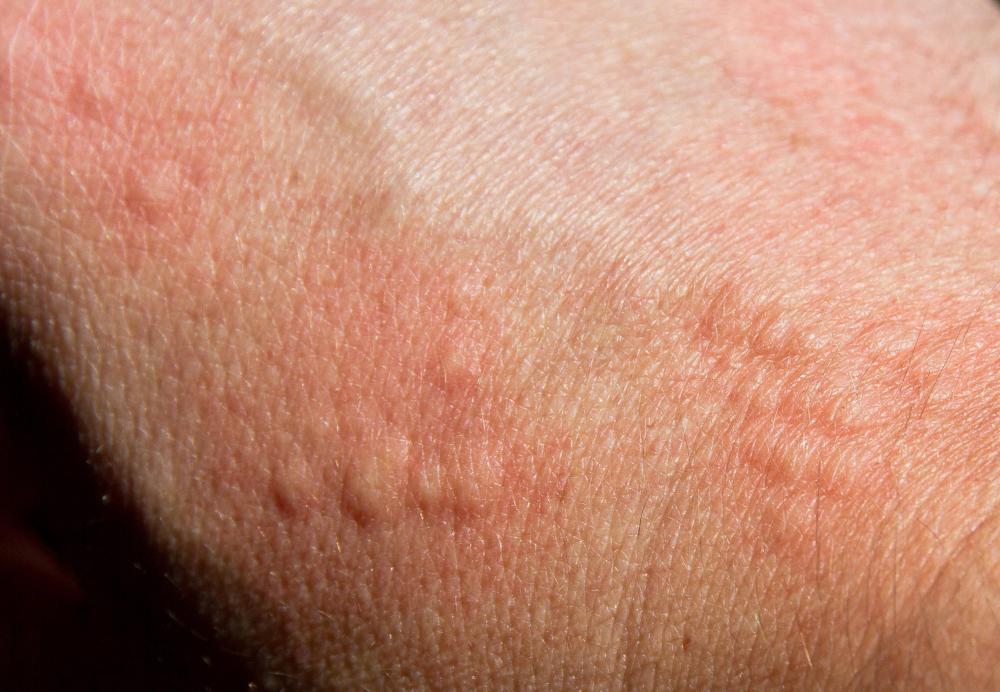At WiseGEEK, we're committed to delivering accurate, trustworthy information. Our expert-authored content is rigorously fact-checked and sourced from credible authorities. Discover how we uphold the highest standards in providing you with reliable knowledge.
What is Dacarbazine?
Dacarbazine is a drug that is used to treat cancer. It interferes with the growth of cancer cells and can slow these cells from spreading in the body. Doctors treating skin cancer and Hodgkin’s disease often prescribe this drug. Some patients may experience serious side effects from it, including allergic reactions and decreased bone marrow function.
The drug works as an alkylating chemotherapy agent linking together specific sections of deoxyribonucleic acid (DNA) that help prevent cell division and growth. It is commonly used with other drugs, such as adriamycin, bleomycin, and oncovin, for the treatment of Hodgkin’s disease. Dacarbazine gained the approval of the Food and Drug Administration (FDA) in 1975. It is the only FDA-approved chemotherapy drug for metastatic melanoma.

Dacarbazine is usually administered as an injection into the vein through an intravenous (IV) portal. A doctor will determine the right dosage and frequency, depending on the type of cancer being treated. The size of the patient, as well as the health of the patient, will also be considered to determine the correct dosage. Regular blood tests and other medical evaluations may be required while taking dacarbazine.

Patients taking the drug may experience a weakened immune system, thus making them susceptible to infections. Health care providers typically advise patients on dacarbazine to avoid contact with people who have colds, the flu, or other contagious illnesses. These patients are also advised against receiving vaccines that contain live viruses, such as the polio vaccine. Avoiding contact with people who have recently received live vaccines is also advised.
During treatment, the drug can escape from the vein and travel into the surrounding areas of the body. This can cause serious damage to the tissues it comes in contact with. Patients undergoing dacarbazine treatment should watch for any burning, redness, or swelling near the site of the IV administration. If any of these symptoms occur, patients should report it to their doctor immediately.
A serious side effect of the drug is allergic reaction resulting in shortness of breath, difficulty breathing, swelling of the tongue, and hives. Other serious side effects include decreased bone marrow function and blood problems that cause extreme fatigue, bruising, bleeding, fever, chills, and infection. Nausea, vomiting, diarrhea and loss of appetite may also occur when taking dacarbazine. Less serious side effects may include hair loss, numbness, and rash.
Patients who want to become pregnant or who are already pregnant are cautioned against taking this drug, as it may cause birth defects. Women who are pregnant, breastfeeding, or who plan on starting a family in the future should inform their doctor immediately. Dacarbazine may cause fertility problems.
AS FEATURED ON:
AS FEATURED ON:












Discuss this Article
Post your comments